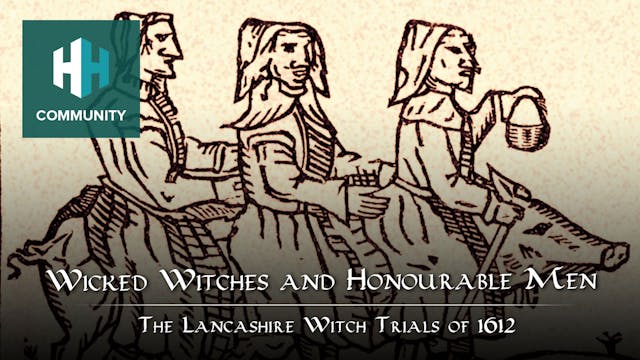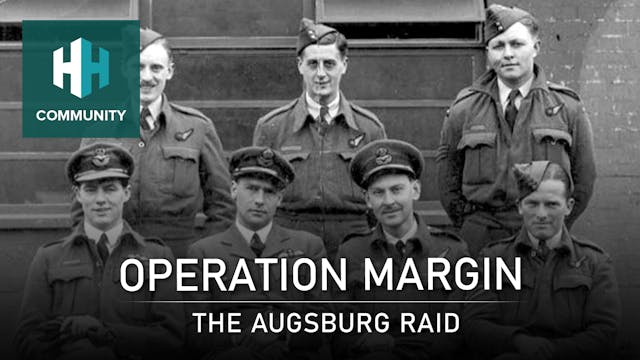On the 11th of November at 11am in 1918, the guns fell silent on the western front. Exactly a year later, commemorative events took place across what was then the British Empire to remember those who had fallen during the First World War – however, not all events were looked upon favourably by contemporaries. Louise will look at the origins of the two minutes silence, the wearing of poppies and how the act of remembering those who have fallen in war have evolved in the years since.
Up Next in Season 1
-
Wicked Witches and Honourable Men: Th...
In 1612, Lancashire witnessed what could arguably be the most notorious witch trial of early modern England. In 1613, court clerk Thomas Potts published a lengthy pamphlet outlining the events leading to and during these trials. It is a text full of suspicion, heresy, curses, and murder, and who ...
-
Operation Margin: The Augsburg Raid
In April 1942 the Second World War hung in the balance. Nazi Germany had occupied most of Europe and its seemingly unstoppable armed forces were driving deeper and deeper into Russia and North Africa. To add to Allied worries, German U-Boats were threatening to cut off Britain’s supply lines in t...
-
Bloody Chocolate: Contraband and Viol...
Dr. Ben Fuggle examines the 18th century Costa Rican Chocolate trade and use it to discuss the connections between trade and violence and how indigenous groups and European empires struggled to cooperate even when their goals seemed to align.



